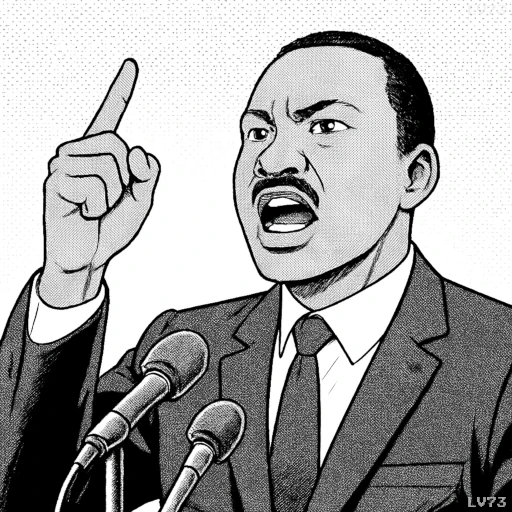“The past is prophetic in that it asserts loudly that wars are poor chisels for carving out peaceful tomorrows.”

- January 15, 1929 – April 4, 1968
- African American
- Pastor and civil rights leader
table of contents
Quote
“The past is prophetic in that it asserts loudly that wars are poor chisels for carving out peaceful tomorrows.”
Explanation
In this quote, King reflects on the lessons of history, emphasizing that war is an ineffective tool for creating lasting peace. He suggests that past conflicts demonstrate clearly that violence and warfare do not pave the way to a truly peaceful future. Instead, King sees war as a “poor chisel”—a blunt, imprecise instrument that may temporarily address issues but ultimately fails to build the foundations needed for harmony and understanding. His words reflect his belief that true peace must be built through nonviolent methods based on compassion, cooperation, and justice.
King’s insight aligns with his lifelong commitment to nonviolent resistance. He saw that throughout history, wars may have ended particular conflicts, but they often left lasting scars and unresolved tensions that led to further violence. For King, sustainable peace requires a fundamentally different approach—one that rejects destruction and seeks to build mutual understanding and respect. He believed that only by prioritizing compassion over conflict could societies create enduring peace.
Today, King’s message is a powerful reminder of the importance of seeking nonviolent solutions to global and local conflicts. His words encourage us to question approaches that rely on aggression and to consider alternative paths to resolving disputes. In issues ranging from international relations to community conflicts, King’s quote challenges us to focus on diplomacy, understanding, and dialogue as means to build a more peaceful future. By learning from the past, we can choose constructive and compassionate methods to create a world where peace is carved not from force but from empathy and mutual respect.
Would you like to share your impressions or related stories about this quote in the comments section?


